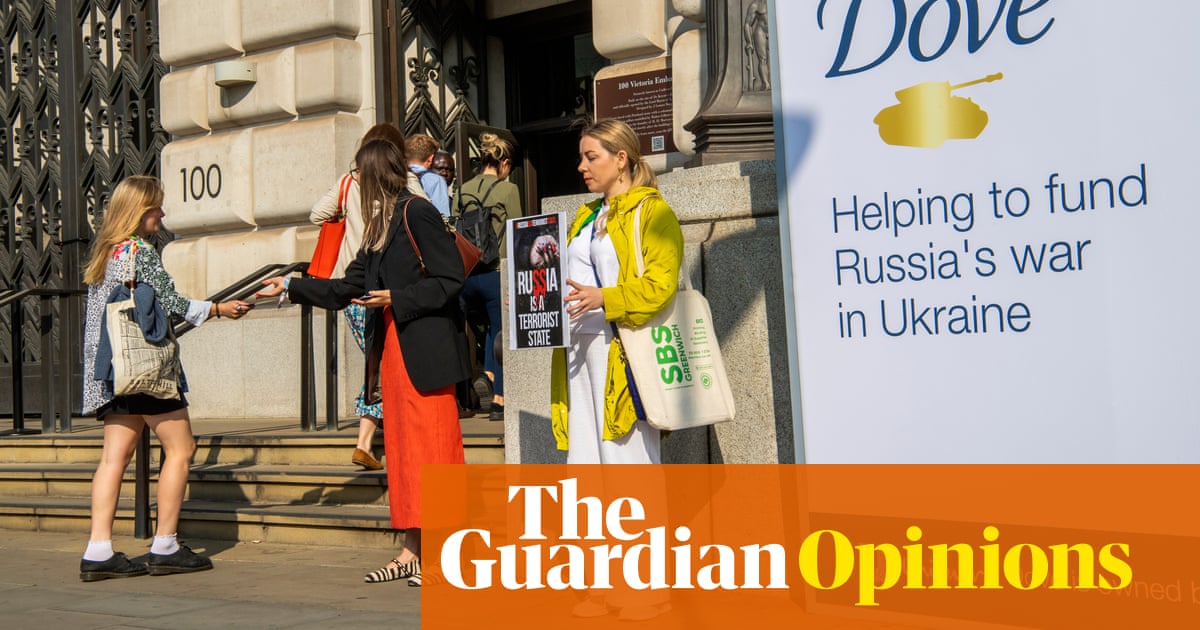
Hein Schumacher, the relatively new chief executive of Unilever, scored a few points with shareholders last week by announcing a sensibly pragmatic tweak to the group’s messaging about the “purpose” of its brands. “Force-fitting” worthy values, he said, would in some cases be an “unwelcome distraction”.
It was hardly a revolutionary declaration, despite the acres of coverage it generated. But, if it means that Unilever will tone down its self-congratulatory boasts, many of us would applaud. It is right that Unilever and its ilk should be transparent about their efforts to, say, reduce wasteful packaging at Hellman’s, but the exercise becomes irritating when it is smothered in overblown claims about the meaning of mayonnaise. Do the important behind-the-scenes work, but cut the waffle.
Yet that little debate really served as an unwelcome distraction from something more important: why is Unilever still operating in Russia? Why is this consumer-facing multinational, which remains committed to the idea that it wants to create “a lasting positive impact on the world”, still prepared to pay corporate taxes to a Russian state waging a brutal and illegal war in Ukraine?
On that score, Schumacher had less of substance to say. He arrived at Unilever at the start of July promising to look with “fresh eyes” at the presence in Russia, but it was hard to spot a departure from tired corporate refrain that it’s all terribly difficult.
He said he understood why there are calls to leave the country, and he noted the action to “minimise Unilever’s economic contribution to the Russian state”, which was a nod to past actions to cease local advertising and stop imports and exports of ice-creams, detergents, shampoos and so on. And he added that Unilever would “continue to watch the situation closely and review our options”. In other words, the outcome of his “fresh eyes” review is to change nothing but be open-minded about having another review at an unspecified time in the future.
It all feels hopelessly inadequate. While one can understand Unilever’s argument that the Russian state would gain by appropriating Unilever’s four factories in the country (as happened, more or less, to the Danish brewer Carlsberg and the French yoghurt maker Danone), the group is failing to see the wider picture.
First, it is handing a mini propaganda coup to Putin’s regime every day that Magnum ice-creams are available for sale in Moscow and elsewhere. Second, the corporate taxes being paid by Unilever’s Russian operations are not small change: they were reported to be 3.8bn roubles, or about £30m, in 2022. Third, the plea that staying protects 3,000 local employees became nonsense when Unilever said it would comply with local conscription law, meaning its Russian workers could be sent to fight in Ukraine.
Schumacher’s appointment, plus that of new chair Ian Meakins, offered the chance of a U-turn on Russia, as argued here a couple of months ago. Instead, the shock – at least, one hopes it was a shock – of being named a “sponsor” of war by the Ukrainian government has not provoked a real rethink in the boardroom. The duo should not be surprised if consumers decide they don’t give a damn about the social or environmental purposes of Dove, Domestos and Marmite, in whatever terms they are expressed, while the parent company continues to trade in Russia.
"still" - Google News
October 31, 2023 at 12:47AM
https://ift.tt/2PrT9SX
New Unilever boss is still getting it wrong on Russia - The Guardian
"still" - Google News
https://ift.tt/TzYVjHW
https://ift.tt/vI7t5li
Bagikan Berita Ini














0 Response to "New Unilever boss is still getting it wrong on Russia - The Guardian"
Post a Comment